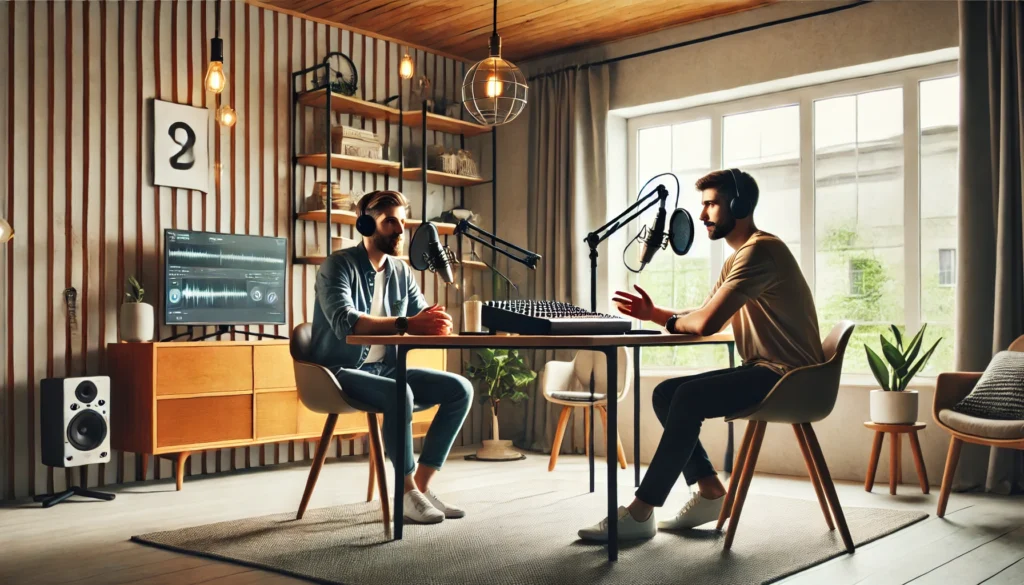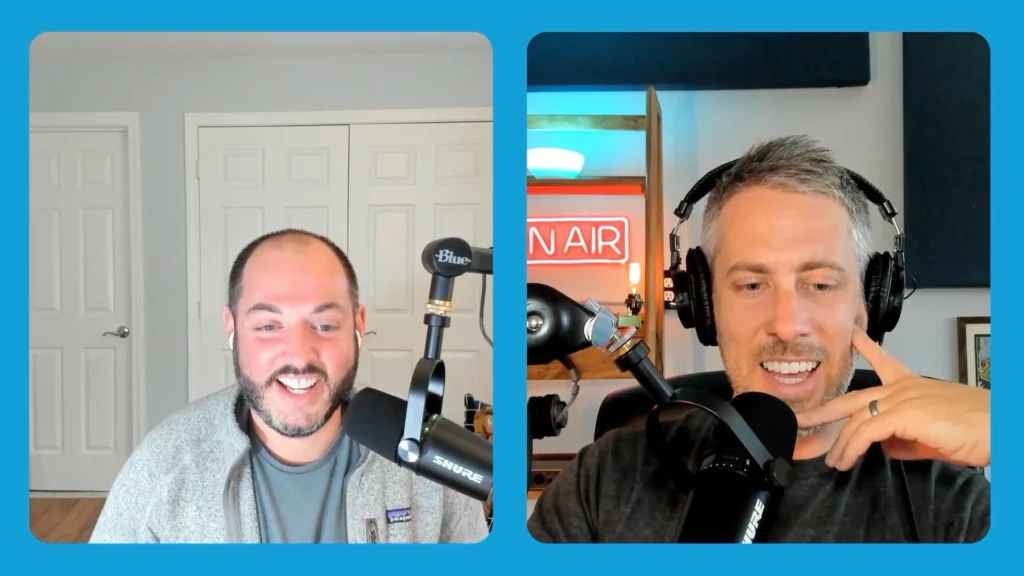
Tips For Conducting Great Podcast Interviews
Conducting a great podcast interview is both an art and a science. Whether you’re new to podcasting or looking to refine your interviewing skills, these podcast interview tips will help you engage your guests and captivate your audience.
There’s an Audience for Everything
No matter your podcast’s niche, there’s always someone interesting to interview. For instance:
- Fashion Podcasts: Interview up-and-coming designers or fashion influencers.
- Political Podcasts: Engage with local politicians or policy experts.
- Music Podcasts: Chat with band members, managers, or venue owners.
- Scripted Podcasts: Feature voice actors or writers in special episodes.
Actionable Tip: Make a list of potential guests within your niche. Think outside the box to find unique perspectives that will intrigue your audience.
Podcast Interview Tips for Effective Planning
Research Your Guest
Understand your guest’s background, expertise, and any hot-button topics they’re associated with. This research enables you to ask insightful questions and avoid sensitive subjects they might prefer to skip.
Actionable Podcast Interview Tip: Read recent articles, watch interviews, or check their social media profiles to get up-to-date information.
Prepare an Outline
Draft key questions and topics you want to cover during the interview. An outline ensures you stay on track and cover all essential points without overlooking anything important.
Actionable Tip: Write down at least five open-ended questions that encourage detailed responses. ChatGPT can help you with this.
Be Flexible
While it’s important to have a plan, allow room for natural conversation and unexpected insights. Some of the best moments in podcast interviews come from spontaneous interactions.
Actionable Tip: Balance your preparation with spontaneity to create a more engaging and authentic conversation.
How to Determine Your Interview Style
Your interviewing style can greatly impact the quality of your podcast. Generally, interviewers fall into three categories:
1. Pantser
The pantser tosses out all planning except for the ideas in their head. They just go for it and see where it goes, flying by the seat of their pants in a sometimes messy endeavor.
Risk: You may come off as uncaring about your guest and risk the chance that they won’t return or promote your podcast.
2. Plotter
The plotter is organized—they outline and research extensively. However, they can get lost in their notes and facts, making the interview dry and unnatural-sounding to the listener.
Risk: You may appear robotic or like a know-it-all, which can alienate your guest.
3. Hybrid
The hybrid combines both approaches. This interviewer utilizes a plan based on research but also lets the conversation flow in a more enjoyable and natural manner.
Recommendation: Aim to be a hybrid interviewer. Strive for a balance between structure and spontaneity to put both you and your guest at ease.
Scheduling and Professionalism
- Coordinate Availability: Use scheduling tools to find a suitable time for both parties.
- Choose the Right Platform: Opt for reliable recording platforms like Riverside.fm or SquadCast. Avoid using Zoom due to audio quality issues.
- Respect Their Time: Be punctual and keep the interview within the agreed timeframe.
Actionable Tip: Send a calendar invite with all the details and a brief on what the guest can expect. This is a huge podcast interview tip that shouldn’t be overlooked. Organization is key!

Conducting the Interview
- Create a Comfortable Environment: Ensure both you and your guest are at ease.
- Test Your Equipment: Do a quick sound check to prevent technical issues.
- Guide the Conversation: Keep the discussion on track while allowing for organic moments.
- Listen Actively: Show genuine interest in your guest’s responses.
Actionable Tip: Use verbal affirmations and follow-up questions to show you’re engaged.
Post-Interview Etiquette
- Express Gratitude: Thank your guest sincerely before they leave.
- Provide Next Steps: Let them know when the episode will air and how they can access it.
- Encourage Promotion: Politely ask if they’d be willing to share the episode with their audience.
- Share the Episode Links: On the day the episode goes live, send them a quick email with links to the podcast. Ask if they’d be willing to promote the episode on their channels.
Actionable Tip: Send a personalized thank-you email with all the relevant links once the episode is live.
Aftercare
You’ve captured your interview, made an awesome connection, and now you might be hoping your guest will promote your podcast to their audience. While this would be fantastic, don’t always expect it.
However, there are ways to encourage them politely:
- Thank Them Again: Before they leave, mention how you plan to use the interview and express your appreciation.
- Send a Personalized Thank-You Note: Include the date and time the episode will air, and invite them to listen.
- Share the Episode Links: On the day the episode goes live, send them a quick email with links to the podcast. Ask if they’d be willing to promote the episode on their channels.
Continuous Improvement
- Seek Feedback: Ask your guests for suggestions on how you can improve future interviews.
- Reflect on Performance: Listen to your episodes critically to identify areas for enhancement.
- Stay Updated: Keep learning about podcasting trends and interviewing techniques.
Actionable Tip: Join podcasting forums or groups to exchange tips with other podcasters.
By implementing these strategies, you’ll not only conduct better interviews but also build a reputation as a professional and engaging podcaster. This will help attract more high-quality guests and grow your audience over time.
Looking For More? These Articles Will Help You Become a Better Creator:
- How To Choose the Right Podcast Format: The Key To Consistency and Engagement
- The Best Headphones For Editing Podcasts and YouTube Videos
- The Best Podcast Recording Software: Our Eight Favorite DAWs
- How To Choose Your Podcast Length
- Best Podcast Microphones For 2025: Our Top 10
Connect With Us:
- The Podcast Haven Homepage
- Our YouTube
- TikTok
- Listen To Our Flagship Podcast CLIPPED on Apple Podcasts
- Listen To Our Flagship Podcast CLIPPED on Spotify
